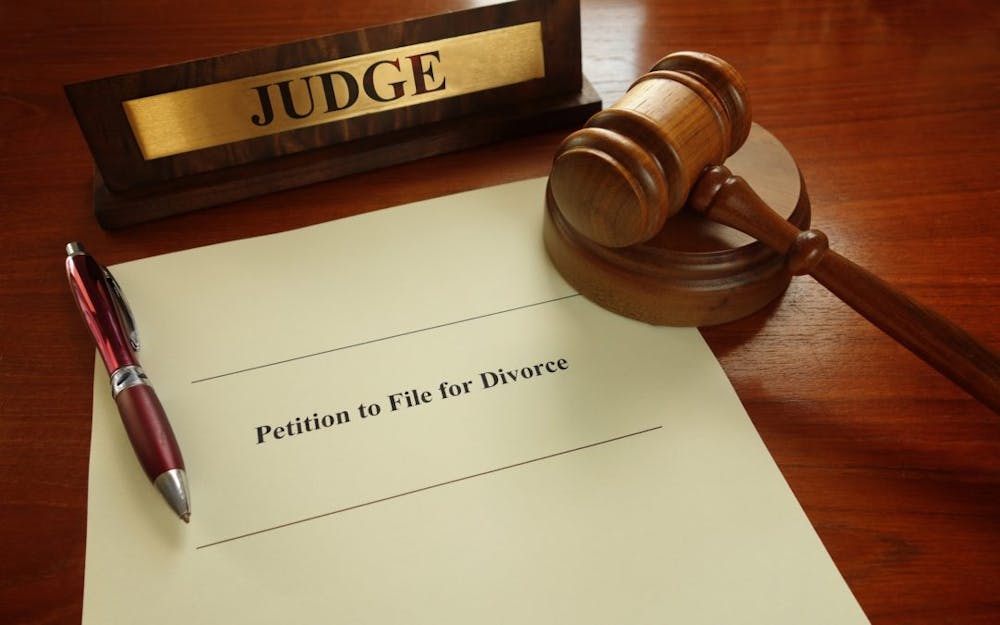California is one of 9 “community property states” in the U.S. In these states, courts handle asset division in divorce cases by splitting all shared property equally, which generally means a strict 50/50 split. The Ventura, CA divorce lawyers at the Law Offices of Bamieh and De Smeth are here to discuss what this 50/50 split means and what assets are typically divided during a divorce. If you are getting divorced and need a lawyer to represent you in your case and help you protect your property rights, contact our law offices today to schedule a free legal consultation.
What Does a 50/50 Community Property State Mean?
When a state is a “community property” state, it means that divorce cases usually follow a 50/50 split. In a marriage, property can either be “individual property” (also known as “separate property”) or “marital property” (sometimes called “joint property”). Each spouse has their own property that they own before the marriage, and they continue to maintain individual ownership over this property even after getting married. That means that you might fully own your car from before marriage or the jewelry you wore on your wedding day since it was purchased before the wedding. In contrast, the house you bought together or the TV and furniture you bought for your living room is joint property that you own together.
Typically, the property you own together is divided at divorce, but you get to keep your individual property. In a community property state, the marital property is known as “community property” and is usually divided 50/50.
By default, any property you acquire during the marriage is community property. That means that your income, clothes, investments, gifts, cars, and other examples of property you acquire during your marriage are jointly owned with your spouse. Some exceptions may apply, but generally, all property acquired between the date of marriage and the date of separation is community property.
In some states, this property is divided “equitably” upon divorce. That means each spouse gets a “fair” share, but not necessarily half of the property. In California, each party gets half of the marital property. Put other ways, this means that you split the property 50/50 or you each get an equal share of the property.
Anything you owned before the marriage is your individual property. You keep this property after divorce, since you owned it individually. If you intermingle this property with your spouse’s (e.g., if you mingle your funds into a joint bank account), it likely becomes community property. Similarly, any increased value in the property that came about during the marriage is also community property. For instance, if your individual stock portfolio doubled in value the day after your wedding day, half that value is yours and half is community property. There are other complex rules about community property and individual property, and it is always a good idea to talk to a lawyer about what property will be divided upon divorce in your case.
Can I Avoid Equal Asset Division in a California Divorce?
Since California’s default laws split community property 50/50, you may think there is no way to avoid losing half of what you own. Fortunately, California law does allow you to avoid the default asset division by making an agreement with your spouse. When you make an agreement for asset division, you can essentially divide assets however you agree.
One important tool for changing asset division is a prenuptial agreement. When you form a prenup with your spouse, you can decide from the outset how your asset division will work. You may also set aside certain property as individual property so that it will not be divided later, potentially keeping the 50/50 split with the rest of the property.
If you do not form a prenup but still want to make changes to your expected property division, you can form a postnuptial agreement instead. Like prenups, these can set aside individual property and change the 50/50 asset split, but you form the contract after the wedding instead of before.
If you did not plan for these issues in a prenup or a postnup, you can instead form a divorce agreement. Handling asset division privately with your lawyer and your spouse instead of having a judge decide your case gives you the power to set aside various assets and agree to divide assets however you want. This agreement can also set the date of separation so everyone agrees what date newly acquired property stops being community property and starts being individual property again.
Typically, judges will approve agreements if they seem fair and neither party seems coerced into signing. In cases where both sides were represented by lawyers, judges are more comfortable trusting that the agreement was fairly negotiated and that both sides understand what they agreed to.
These agreements can be fantastic tools for speeding up a divorce case. Because every divorce case has a 6-month waiting period between the date of filing and the date the divorce is finalized, you can use those 6 months to negotiate your divorce case with your spouse and make decisions about asset division and other important questions.
Call Our Ventura Divorce Lawyers for a Free Legal Consultation on Asset Division
If you are filing for divorce in California or your spouse has filed a divorce case against you, it is important to understand how the divorce will affect your finances and what property you will be able to keep after the divorce. Our Ventura and Santa Barbara divorce attorneys can help you through this process. Call the Law Offices of Bamieh and De Smeth’s Ventura family law attorneys today to schedule a free legal consultation and learn more about retaining the services of our experienced California divorce lawyers. Our number is (805) 643-5555.



